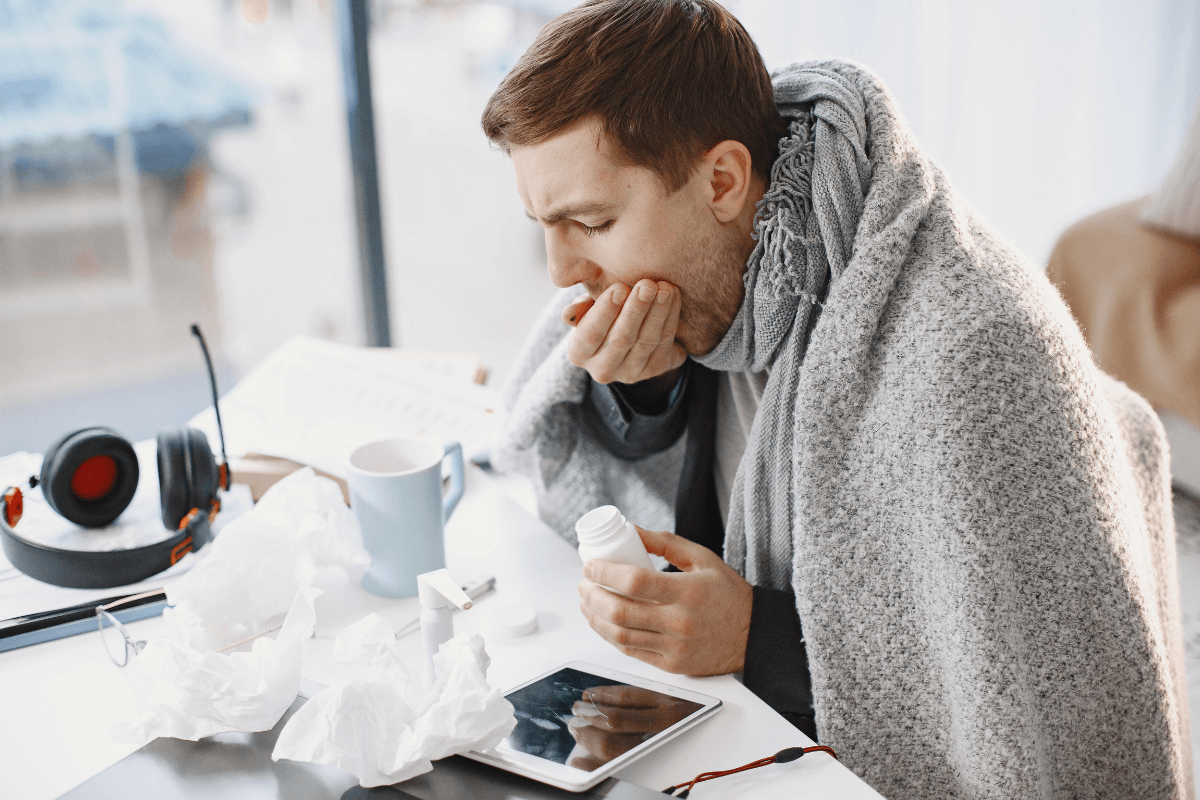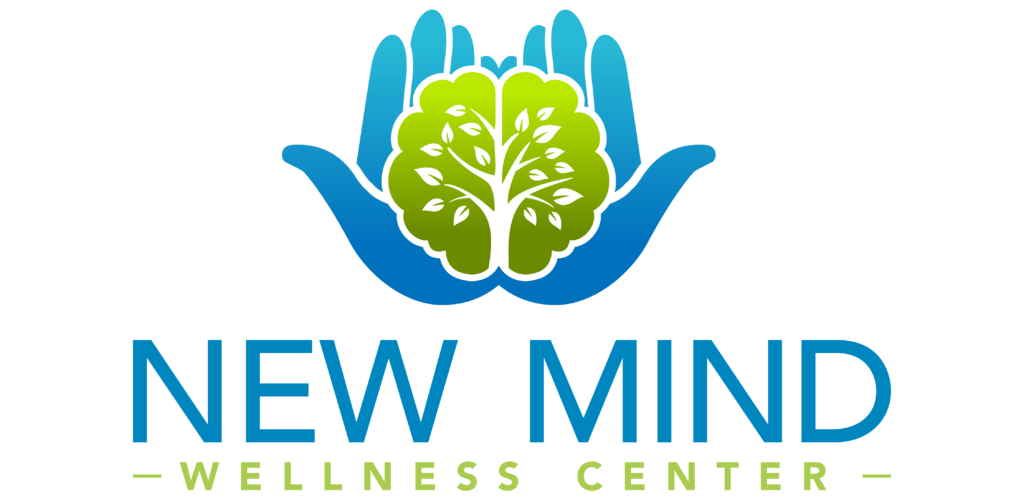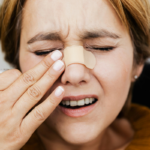
Can Depression Make You Physically Sick?
You know that mental illnesses affect a person’s thoughts and emotions. But do they also have physical symptoms? For example, can depression make you sick?
To learn more about Mental Health Treatment options at New Mind Wellness, call us today or verify your insurance online. We’re excited to help you start your personal recovery journey.
Defining Depression
Before we can address the question, can depression make you sick, it’s important to establish what we mean when we use the word “depression.”
In casual conversation, this term is often used as a synonym for feeling sad or having a case of the blues. It’s not uncommon for someone to say they’re depressed over relatively trivial matters such as their favorite TV show being canceled or their favorite player being traded to another team.
When used in a clinical context, though, depression refers to several potentially debilitating mental health disorders, including:
- Major depressive disorder
- Persistent depressive disorder
- Postpartum or peripartum depression
- Seasonal affective disorder (SAD)
- Premenstrual dysphoric disorder
These conditions share many of the same symptoms, and are differentiated primarily by when symptoms occur and how severe they become.
Common psychological and behavioral signs of depressive disorders can include:
- Deep sadness or low mood
- Difficulty experiencing joy or pleasure (anhedonia)
- Being easily frustrated or angered
- Agitation and restlessness
- Loss of interest in most or all activities
- Problems with memory, focus, and concentration
- Indecisiveness
- Diminished confidence and self-esteem
- Overwhelming sense of hopelessness and worthlessness
- Recurrent thoughts of death and dying
- Self-harm
- Suicidal ideation
Though we commonly think of depressive disorders solely from a mental and behavioral health perspective, they can also cause a variety of physical symptoms, which we’ll discuss in the next section.
Can Depression Make You Sick?
Can depression make you sick? Yes, it can.
There is a strong connection between depression and symptoms that are typically associated with physical sickness. However, many patients don’t even realize that their physical distress is related to a depressive disorder.
In the early 1990s, the World Health Organization conducted a survey of patients in 15 primary care centers located in 14 separate nations. Findings from this survey included:
- Of all patients who met the criteria for a diagnosis of depression, 69% reported only somatic (physical) symptoms as the reason for visiting the center.
- About 50% of the patients with depression reported multiple somatic symptoms.
- Around one of 10 patients who exhibited the signs of depression denied that they were experiencing psychological symptoms when questioned about their mental health.
Common physical symptoms of depression include fatigue, headaches and stomach aches, appetite changes, and disrupted sleep. Many depression-related physical symptoms can, in turn, increase a person’s risk for developing additional physical ailments.

Fatigue
Depression can be exhausting – literally.
This statement isn’t based on anecdotal reports alone. The Diagnostic and Statistical Manual of Mental Disorders (DSM-5), which is the standard reference book for clinicians in the U.S., includes exhaustion-related symptoms in the criteria for several depressive disorders:
- The DSM-5 lists “fatigue or loss of energy nearly every day” as one of the criteria for a diagnosis of major depressive disorder.
- The DSM-5’s criteria for persistent depressive disorder include “low energy or fatigue.”
- For premenstrual dysphoric disorder, the diagnostic criteria include “lethargy, easy fatigability, or marked lack of energy.”
As defined by the DSM-5, SAD and postpartum depression are versions of major depressive disorder, so the entry for MDD above also applies to those two conditions.
Physical Pain
Headaches, stomach aches, muscle tension, and back pain are among the more frequent types of physical discomfort experienced by people with depression.
An article on the Harvard Medical School website notes that the relationship between depression and pain may be due in part to how the brain processes both of these phenomena:
The somatosensory cortex (the part of the brain that interprets sensations such as touch) interacts with the amygdala, the hypothalamus, and the anterior cingulate gyrus (areas that regulate emotions and the stress response) to generate the mental and physical experience of pain. These same regions also contribute to anxiety and depression.
Appetite Changes
Some people who develop depression lose their appetite, while others begin to eat compulsively. Both types of abnormal eating habits can be detrimental to your health:
- Appetite loss can lead to malnutrition, muscle weakness, and dangerously low body weight.
- Over time, the compulsion to overeat can contribute to a host of physical problems, including unhealthy weight gain, abdominal pain, metabolic stress, diabetes, and hypertension (high blood pressure).
Abnormal Sleep
Abnormal sleep patterns are common symptoms of depressive disorders.
This can include insomnia (difficulty falling asleep and staying asleep) and hypersomnia (excessive sleeping and persistent sleepiness) – both of which can negatively impact your health:
- Chronic insomnia has been linked with an increased risk of several medical problems, including high blood pressure, heart disease, obesity, and diabetes.
- Hypersomnia can be a risk factor for physical health concerns such as hypertension, cardiovascular disease, and stroke.
Poor Self-Care
Depression can rob you of both the desire and the energy to take care of yourself, which can have a profound negative effect on your health.
Common examples of poor self-care among people with depression include:
- Unhealthy eating habits, which can deprive the body of vital nutrients
- Lack of exercise, which can exacerbate fatigue, worsen muscle weakness, and contribute to immune system dysfunction
- Delays in seeking medical attention for minor health problems, which can allow them to persist and become more severe
- Smoking, drinking alcohol, and using other dangerous substances, which can cause considerable immediate and long-term health damage
- Engaging in acts of self-harm, which can lead to infections and other health problems
Find Depression Treatment in Philadelphia
Untreated depression can wreak havoc on your physical, psychological, and social well-being. But when you get the help you need from a reputable provider, you can make sustained progress toward a much healthier and more hopeful tomorrow
New Mind Wellness Center is a trusted source of personalized outpatient care for adults who have depression and other mental health concerns.
Treatment options at our center Philadelphia, PA, include a partial hospitalization program (PHP), an intensive outpatient program (IOP), and an outpatient program (OP). Our team of experienced and compassionate professionals will work closely with you to identify the programs and therapies that best align with your unique needs and goals.
To learn more about how we can help you or a loved one, or to schedule a free consultation, please visit our Contact page or call us today.





